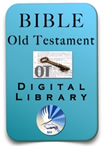
Psalm 89
The Bible Teaching Commentary
Learning how to Effectively Study the Old Testament Psalms
Paul J. Bucknell
Psalm 89: Learning to Effectively Study the Old Testament Psalms uses a study of Psalm 89 to highlight different study methods for the Old Testament. In this first study, we ask the question, "Is it important to read the Old Testament?" and briefly introduce inductive Bible study methods.
__________________________________________________________
Reading the OT | Studying Psalms | Psalm 89 Short | Psalm 89 Long study
__________________________________________________________
Christians rarely regularly use the Old Testament. The typical new believer will read through Genesis, Exodus and stop halfway. They get snared in the details of the laws or genealogies. We can understand. We probably have had the same experience. Two important questions arise. The second follows an affirmative answer of the first.
✦ "Are believers expected to read the Old Testament scriptures?"
✦ "How can we make most use of the Old Testament scriptures?"
Is it important for the believer to spend time and energy studying the Old Testament? Most definitely. Many believers are not so sure about this. Many conclude the Old Testament's value is limited to the Creation account, the Exodus, the promises of the Messiah and many comforting words.
They have not been able, however, to understand how the the Old Testament practically teaches us about practical issues such as temptation in the world (Genesis 6:1-6, Numbers 25), issues about marriage (Genesis 2:18-25, Judges 14-16), God’s handling of sin (Genesis 25-35) and many other topics.
The more one logically thinks this through, the easier it is to recognize that the New Testament is in fact largely built on the Old Testament. Jesus and the apostles are regularly quoting and referring to the Old Testament. Each significant point in Paul's argument in the Book of Romans is backed up by Old Testament quotes.
 Think of the Old Testament as a foyer that leads into a grand-sized room. Without going through it, one's understanding is severely limited. We will not properly understand the New Testament without understanding the Old Testament.
Think of the Old Testament as a foyer that leads into a grand-sized room. Without going through it, one's understanding is severely limited. We will not properly understand the New Testament without understanding the Old Testament.
Let's finish this discussion by noting a particular scriptural passages that states the value of the Old Testament.
Remember, when a large part of the New Testament was written, they only had the Old Testament.
"All Scripture is inspired by God and profitable for teaching, for reproof, for correction, for training in righteousness; that the man of God may be adequate, equipped for every good work." ( 2 Timothy 3:16-17 ).
The "all scripture" largely referred to the Old Testament. Timothy was brought up on these scriptures (2 Timothy 1:5). Notice how God would and could work through the Old Testament scriptures for our good. The question then is more rightly framed by asking whether we can get by without the Old Testament.
If God designed His Word to powerfully work in our lives, then we should make most use of the Old Testament to become those strong godly people. We must anticipate that He will teach, reprove, correct and train us in righteousness (and other ways).
When we approach the scriptures this way, then we have a believing heart (one that believes God will use His Word to help us). If we do not anticipate His work in our lives, then we need to repent from such a hardened and unbelieving and arrogant spirit. (If this is new to you or you want to go deeper here, read, " Reviving Your Devotions ").
✴ Profitably Using the Old Testament
So let us turn to the second question, "How can we make most of the Old Testament?" We have a goal to be godly people. God wants to use the Old Testament in part to train, guide and help us reach that goal. How does He do this?
The 2 Timothy passage tells us how. The Old Testament scriptures (the New Testament too of course!) are designed and utilized by God to teach, reprove, correct and train us in righteousness. If we would stop reading the Old Testament, then we would lose out on a whole lot!
We must keep the surpassing message of the New Testament with the Gospel in mind as we read the Old Covenant, but there is much to learn on how God speaks, guides, warns and strengthens us.
Inductive Study of the Bible
The different advice will be divided into short and long but the study will follow the general form of inductive Bible studies. An inductive Bible study is noted by three words: Observation, Interpretation and Application. The sequential questions are:
-
"What does it say?"
-
"What does it mean?" and
-
"What does it mean to me?"
To be even more profitable we might add another question pushing us to share what we have learned.One church planting professor first mentioned this practice so that we could regularly share what God is teaching us with others.
-
"How can I share this truth with someone else today?"
This exploratory approach is more general.
Next => Let's now think about studying the Psalms in general.
_____________
Discovering Your True Treasure











